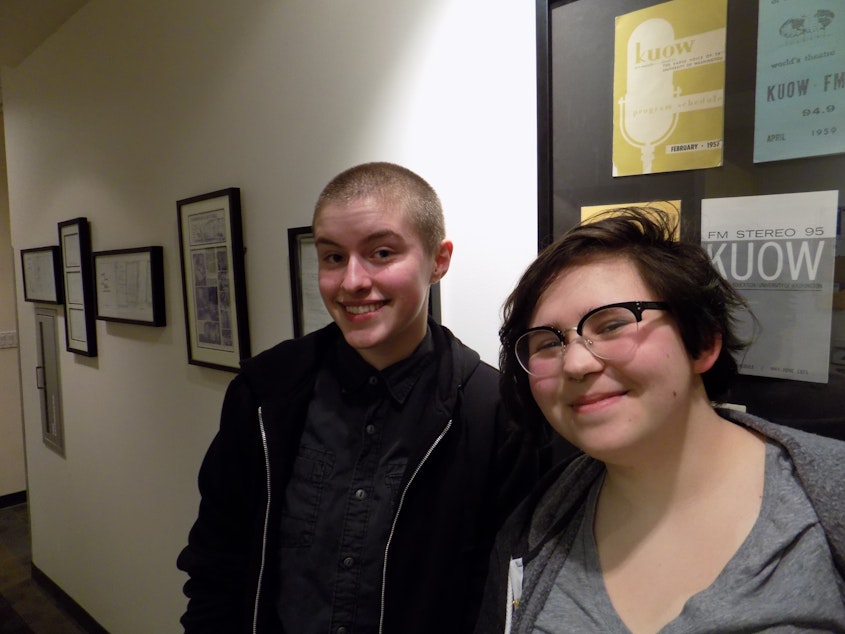Trans teens: Here's what you miss when you debate the bathroom issue

KUOW’s Bill Radke talks with Leyla Gheisar and Fred Anex-Schnauss, two non-binary trans teens in Seattle who, despite state protections, still struggle with bathrooms. They also point out racism within the trans community here.
I was involved in school athletics, which meant every day I was changing at school …
Fred: The nurse's office bathroom was the one that I was told that I was allowed to use. And that meant walking through the nurse's office often when they were with a patient, going in there to use the bathroom.
Every single time that I need to pee, I will be doing calculations to figure out where I can safest do that, and where I cannot make other people feel uncomfortable. And how far I can walk across campus before I'm missing half my class to go to the bathroom.
About 300 transgender woman a year are killed in the U.S. every year ...
Sponsored
Leila: When people talk about violence against trans people, they often ignore the fact that it is almost entirely toward black and Latina trans women of color. Recognizing that it is a problem, and recognizing that race and misogyny do have a part to play in trans hate crimes is a big step.
I often see white trans men dominating discussions about transphobia, which is not the most productive thing, because statistically they are not the primary targets, and they are not the people that are being actively murdered.
Fred: There's a lack of spaces where we can all be together, because of racism in our community. There is no way to deny that racism and transgender misogyny are the primary things that are causing harm to the transgender community as a whole.
There's often this thing that I've seen happen in Seattle, where people check off the inclusion box by being like, ‘I have an identity that's marginalized and now I can't marginalize other people,’ but that's just simply not true.
Resiliency gives me hope as a trans youth …
Sponsored
Fred: A lot of what I saw and what I learned was that I was supposed to be tragic and see my life expectancy as no later than 25 and expect violence and expect to be treated in a subhuman way.
Portraying our community as successful and complicated and lovely and surreal — and all of the complex things that humans are — gives more space for hope and for transgender youth to find ways to be successful and loved.
This interview was edited for clarity. It was produced for the web by Isolde Raftery.

